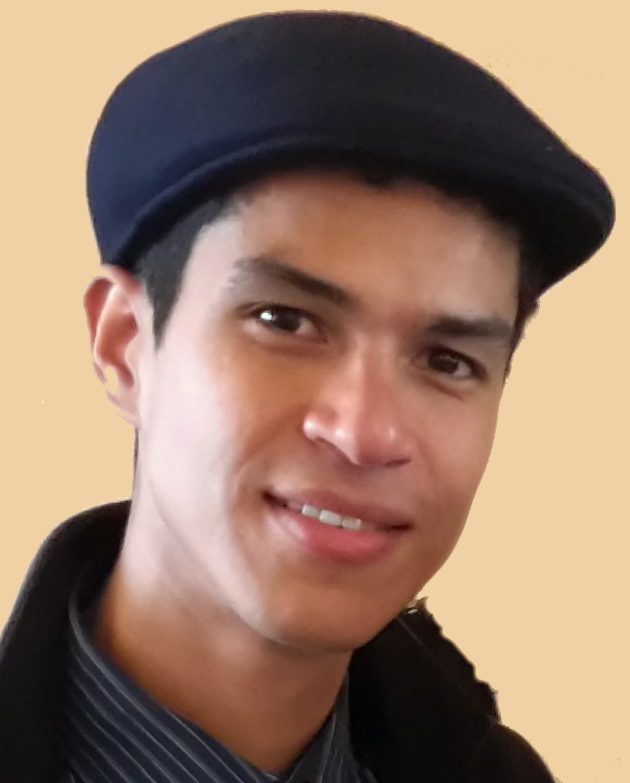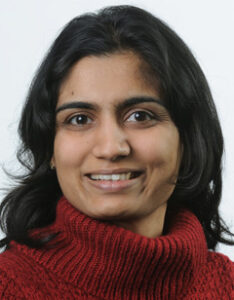Tassadit Bouadi is an associate professor at the University of Rennes (France), and a member of the IRISA research institute since 2014. Her interests are at the intersection of data mining and knowledge discovery in databases (especially skyline analysis), data warehousing, and preference modeling. Her areas of application are mainly related to agri-environment. She is also interested in the explainability/interpretability of ML models. In particular, she is working on how to improve the quality of counterfactual explanations. Among other multiple organization activities, she has co-organized the five previous editions of AIMLAI, as well as the PhD Forum of ECML-PKDD 2019. She has been in the program committee of several conferences (e.g. CIKM, ECML-PKDD, IJCAI, ECAI, IDA…), and has reviewed for many international conferences and journals (e.g., ICDM, COMPAG Journal…). Last year she was the program chair of the Intelligent Data Analysis Symposium (IDA) that took place in Rennes (France).
Benoît Frénay is professor at the Faculty of Computer Science of the University of Namur, Belgium. His main research interests include kernel methods, deep learning, infovis, interpretable ML, interactive ML, large-scale ML, feature selection, robust learning & inference, and safe AI. He collaborates with lawyers and experts in didactic to address societal and educational challenges of AI and ML. He co-chaired the BENELEARN conference in 2014 and the IBM Chair on Data Science in 2018. He also co-organized three special sessions at the ESANN conference in 2014,2016 and 2018. In 2014, he was co-editor for a Neurocomputing special issue on Advances in Learning with Label Noise. He co-organised EASEAI’19, colocated with ESEC/FSE, and several past editions of AIMLAI.
 Luis Galárraga is a full-time researcher at the IRISA/Inria Rennes research center. His research interests comprise three domains: pattern mining, knowledge graphs, and interpretable ML. He is member of the Inria Project Lab HyAIAI (Hybrid Techniques for Interpretable AI), an Inria-funded research initiative involving 5 different teams that work together on different open problems in interpretable ML. He has been a reviewer of multiple international conferences and journals in the domains of data management, pattern mining, and AI, namely The Web Conference, ESWC, PKDD, VLDB, ISWC, IDA, DAMI journal, AIRE journal, SWJ, among others. He has co-organized the fifth previous editions of AIMLAI as well as the special session “Fair and Explainable Models” at the EURO conference in 2021.
Luis Galárraga is a full-time researcher at the IRISA/Inria Rennes research center. His research interests comprise three domains: pattern mining, knowledge graphs, and interpretable ML. He is member of the Inria Project Lab HyAIAI (Hybrid Techniques for Interpretable AI), an Inria-funded research initiative involving 5 different teams that work together on different open problems in interpretable ML. He has been a reviewer of multiple international conferences and journals in the domains of data management, pattern mining, and AI, namely The Web Conference, ESWC, PKDD, VLDB, ISWC, IDA, DAMI journal, AIRE journal, SWJ, among others. He has co-organized the fifth previous editions of AIMLAI as well as the special session “Fair and Explainable Models” at the EURO conference in 2021.
 Megha Khosla is an assistant professor in the Intelligent Systems Department at Delft University of Technology, the Netherlands. Her primary area of research is machine learning on graph structured data. Specifically, she develops algorithms to enable effective, interpretable, and privacy preserving learning on graphs. She has led several projects in privacy preserving machine learning and application of machine learning to personalised medicine in her prior role as Senior Researcher at Leibniz University, Hannover. She is currently also a management team member at Delft Design for Values institute which focuses on integration of values in various application domains including AI. She has been a reviewer of several conferences and journals such as NeurIPS, ICML, AAAI, the Web Conference, TKDE, TOIS among others. She was awarded as an outstanding reviewer at ICML 2022.
Megha Khosla is an assistant professor in the Intelligent Systems Department at Delft University of Technology, the Netherlands. Her primary area of research is machine learning on graph structured data. Specifically, she develops algorithms to enable effective, interpretable, and privacy preserving learning on graphs. She has led several projects in privacy preserving machine learning and application of machine learning to personalised medicine in her prior role as Senior Researcher at Leibniz University, Hannover. She is currently also a management team member at Delft Design for Values institute which focuses on integration of values in various application domains including AI. She has been a reviewer of several conferences and journals such as NeurIPS, ICML, AAAI, the Web Conference, TKDE, TOIS among others. She was awarded as an outstanding reviewer at ICML 2022.
José Oramas is an Assistant Professor at the Internet Data Lab (IDLab) a joint research lab between the University of Antwerp and IMEC. He received his PhD at the KU Leuven in 2015. During the last 10 years he has conducted research on understanding how groups of elements from images interact and how the relationships between them can be exploited to improve several Computer Vision problems. More recently, his research interests lie at the intersection of Representation Learning, Visual Pattern Mining, and Multiple Instance Learning. More specifically towards investigating exploratory/explanatory models that can identify informative intermediate representations and use them as means to justify the predictions that they make. He regularly serves as reviewer for top-tier scientific conferences and journals including CVPR, NeurIPS, ICCV, ICLR, AAAI, TMM, TIP, IJCV, CVIU, etc. For his service, he has received Outstanding Reviewer Awards at CVPR’19, ACCV’20, NeurIPS’20, ICCV’21 and ICLR’22. He co-organized a tutorial held in conjunction with the European Conference on Visual Perception (ECVP) in 2019. In addition, he co-organized the last two editions of AIMLAI.







